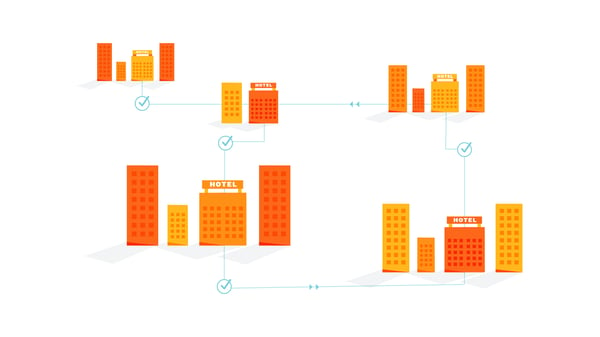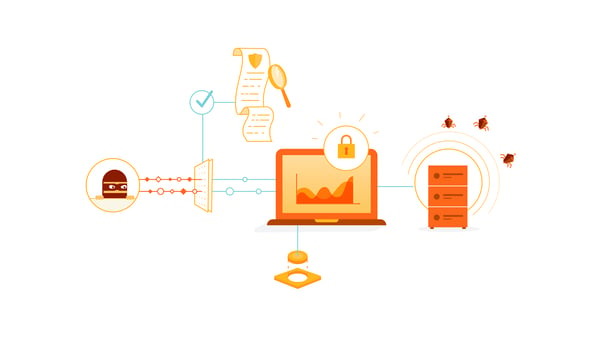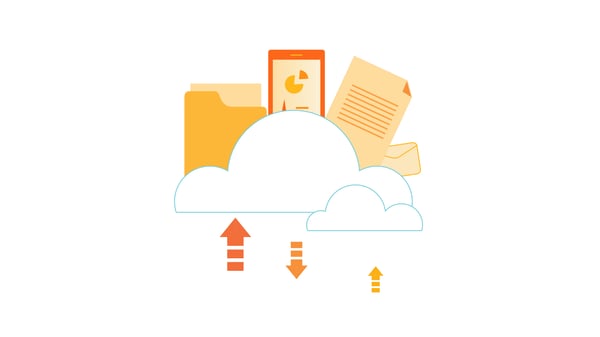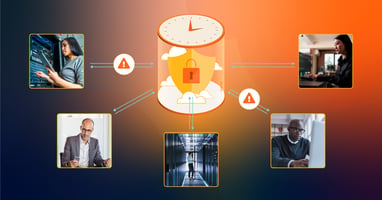Over the past decade, the hospitality industry across the U.S. has experienced consistent growth as global tourism has increased. The hospitality industry is evolving to meet the technological demands while fulfilling a positive customer-facing interaction. It is necessary to integrate technology to improve hospitality because it will be at the root of a customer’s hotel experience. Focusing on infrastructure solutions could improve your organization’s operational capacity and increase profitability.

Conduct an Infrastructure Audit
Outdated or ineffective infrastructure is a common challenge facing established hospitality companies. Equipment that was new 5 years ago is now often obsolete, because technology has advanced so far and fast that newer methods are available to do, well—almost anything. Conducting an audit of your IT infrastructure could show you’re only getting a portion of the performance you need with your current systems. This level of visibility is often hidden in the complexity of the system, making it difficult to gauge the health of your infrastructure or the levels of functionality.
In 2019, 43 percent of system breaches were targeting small businesses. 56 percent of the breaches took months or longer to identify the issue. Certainly, the complexity of the attack may affect how long it may take to discover the issue. However, the goal is to not be a victim.
An audit is a comprehensive report that analyzes your current system so your company can make improvements on. Auditing can be outsourced to experts who can produce a full report and offer suggestions. Outsourcing allows your company’s internal team to focus on achieving other business goals. Data delivered by an audit can help identify issues needing attention and determine whether a system upgrade would benefit you.
Benefits to auditing include:
Reducing any cyber threat to your organization. An audit can identify any risks and assess the severity of the issue by evaluating it.
For preventative measures. Actively running an audit for your company may prevent a threat from occurring and reducing your chances of being a victim of fraud.
Protecting the security of your company’s data will continue to improve. Over time, your company’s assessment of the audits allows you to find ways to improve the security of your data.
Having a strong IT governance helps achieve business goals. Part of auditing helps ensure a smooth operation, ensuring that business practices, regulations, and professional conduct are followed by all employees.
IT auditors can assess the system they are using. It is important to feel comfortable with the system your company is investing in. You want to make sure the system is aligning with your objectives and goals. One way to see if the system is the right fit for you is to allow the IT auditor to offer any suggestions that they may feel is better.
Communication within your organization improves. As a company that is going to rely on technology, the communication between your company’s management and technology management must be in sync. It is expected that a complete audit includes constant communication between the two departments. This is one way to ensure your business goals are reinforced with the IT auditor.
The end goal is to not be placed in a compromising position. The main objective of infrastructure audits is for preventative reasons.
[We aren’t only talking about Front of House and administrative areas, although that’s often where the quickest wins and excellent long-term efficiencies can be found. Even divisions like F&B, Housekeeping, and Maintenance can benefit from upgrading to the latest in hotel property management technology.]
For your hotel business to remain competitive in a technology-driven world, choosing a property management system that is easy to use for your customers is crucial. You also need a system that can efficiently track each department within the hotel is important. Having a reliable internal operating system will lead to quality and reliable service that will have your customers referring and returning to your business.
Optimize Legacy Systems
It’s not always financially viable to discard existing or outdated “legacy” infrastructure, especially those that are only a few years old. Many of these systems remain usable with patches and updates, provided your IT team is qualified to support them. In some instances, it makes sense to add on complementary technological tools to improve performance.
If your business’ budget does not allow you to abandon your legacy infrastructure, there are ways to optimize the performance of your legacy system. The best route to take is to perform data migration. As a business, you want to protect the data that you already have inputted. This process includes extracting your data safely, data mapping, cleaning your data, testing for any data errors that occurred in the previous steps, and loading the new data into the updated system.

Research by Accenture shows 91 percent of executives surveyed identified some legacy components they could make use of to support their digital objectives. Many of these could be integrated with new technology to achieve a more robust infrastructure.
Look to the Future
Improving operations by any means other than a complete overhaul can be “penny-wise and pound foolish” as the saying goes. It’s important when considering an infrastructure revamp to look carefully at your long-term business strategy, to ensure you don’t allocate budget or capital to updating systems that don’t align with future plans. If your organization is currently considering shifting to a Rooms-Only model, for example, it doesn’t make sense to spend money bringing F&B up to speed. Your hospitality company will benefit far more by implementing an IT plan and strategy that encompasses your whole technology eco-system.
Opt for Cloud-Based Services
Most hospitality legacy systems still run on internal servers, even in large conglomerates. That’s all well and good while you have a fully-staffed, in-house IT team, but it simply doesn’t make sense to replace an aging server when you can shift to a cloud-based solution. Such systems are more secure against hacking than any less-than-optimally-managed internal systems, especially those with outdated technology. In addition, the cloud enables streamlining of many processes, reduction of staff, and ultimately the improvement of customers' experiences by facilitating all sorts of electronic interactions you don’t currently offer.
Utilizing a cloud-based server can store sensitive information about your company’s employees or data the same way a computer system can. However, such information stored in a computer system leaves it vulnerable to a security breach. That is not to say that the same information stored in a cloud-based server is immuned to any threat, but that is why it is critical to perform routine audits to reduce any threat to your company’s data.
Categories: Cloud, Business Process Management, Hospitality











